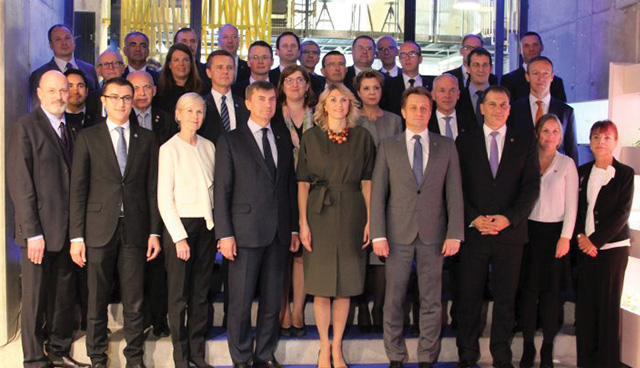The Tallinn Declaration on eGovernment


In October 2017, all EU member states and members of the European Free Trade Association (EFTA) agreed on a five-year roadmap for ensuring high quality, user-centric digital public services for citizens and seamless cross-border public services for businesses.
The eGovernment declaration in Tallin was signed during the eGovernment Ministerial Conference and is the latest reaffirmation of commitments since the Malmo Declaration signed in 2009.
Since the 2009 declaration, progress has been made to modernise public administrations across Europe and deliver cross border eServices, eProcurement and electronic identification.
The unanimous agreement reaffirmed the member states “commitment to progress in linking up their public eServices and implement the eIDAS regulation and the once-only principle in order to provide efficient and secure digital public services that will make citizens and businesses’ lives easier”.
Signed by Minister of State at the Department of Finance and Public Expenditure and Reform Patrick O’Donovan, TD, the Declaration recognised the needs and expectations of citizens and businesses as they interact with public administrations. The signatories committed to designing and delivering their services, guided by the principles of user-centricity. These include:
• digital interaction;
• reduction of the administrative burden;
• digital delivery of public services;
• citizens engagement; and
• redress and complaint mechanisms.
The Declaration outlined that each member state will between 2018 to 2022 take steps towards objectives in their public administrations. These included the following principles:
• Digital-by-default, inclusiveness and accessibility
o ensure that European citizens and businesses may interact digitally with public administration, if they choose to do so and whenever feasible and appropriate from a cost benefit and user-centricity perspective;
o work to ensure the consistent quality of user experience in digital public services as set out in the ‘user-centricity principles for design and delivery of digital public services’ annex of the declaration;
o work to increase the readiness of European citizens and businesses to interact digitally with the public administrations.
• Once only
o work to implement it for key public services, at least as an option for citizens and businesses.
• Trustworthiness and security
o ensure that information security and privacy needs are taken into consideration when designing public services and public administration information and communication technology (ICT) solutions, following a risk-based approach and using state-of-the-art solutions;
o work to increase the uptake of national eID schemes, including to make them more userfriendly and especially more suitable for mobile platforms, while ensuring their appropriate security levels.
• Openness and transparency
o make it possible for citizens and businesses to better manage (e.g. access, check and inquire about the use of, submit corrections to, authorise (re)use of) their personal data held by public administrations, at least in base registries and/or similar databases where feasible.
• Interoperability by default
o work on national interoperability frameworks based on the European Interoperability Framework (EIF), while respecting also the relevant national standards, and adhere to EIF for cross-border digital public services.
Speaking at the event, Minister of State O’Donovan said: “The Declaration once again reinforces the EU and European Free Trade Area countries’ recognition of the importance of digital solutions to increase trade, create jobs and improve the efficiency and effectiveness of government services. I am particularly pleased to support the principles of inclusiveness and accessibility. It is important that we enable all of our people to engage digitally with public and other services and ensure that no-one who wants to use it is left behind.”





